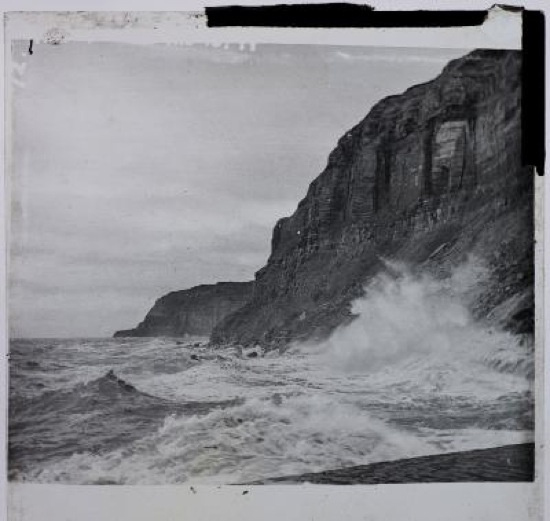Evidence of Sam Willis’ intrinsic worth as a musician presented itself to me during a performance by his duo Walls, upstairs in the sweaty confines of a north-western pub last May. Willis and his Walls partner Alessio Natalizia were one of many on comparatively exotic labels like Kompakt, Ninja Tune and Not Not Fun playing Sounds From The Other City Festival. Press release after press release lies in my inbox, proclaiming their subject’s ability to transcend the tools with which they’ve constructed their sounds. They’re rarely true. Yet Walls are a duo who achieve it effortlessly, and that night, with their equipment placed precariously atop bar tables, their softly-crushed hums and gently propulsive rhythms made their gritty surroundings simply melt away into the mind’s recess, the emotional resonance of their set transporting the gathered throng away from their red brick surroundings towards a euphoric state of lucidity. This isn’t a Walls review, but that night displayed the unquantifiable skill that the pair have of being able to transport their listeners to somewhere that lacks definition but still radiates with warmth and connectivity. It’s a quality that’s once again apparent on Willis’ solo debut LP.
Generally, electronic artists sit somewhere between two ends of a spectrum when discussing their music. Many prefer to focus on the technicalities, their creative processes rarely expanding to take in more abstract meanings in their work; but others tire of the instruction manual, and address their material in terms of themes, theories and applied attitudes. In the past Willis has veered towards the latter. In 2010 he spoke to Quietus editor John Doran about Walls’ self-titled debut LP acting as their "astral travel". The build-up to last year’s follow-up Coracle meanwhile saw him discussing German film director Werner Herzog’s essay On The Absolute, The Sublime and The Ecstatic Truth and asking critics to listen to the album in a flotation tank so as to judge its effect on them.
He hasn’t been as forthcoming on his meditations behind Winterval, though. Thematic signposts do lie in places like the album’s title, song names such as ‘Frozen/Cirrus’ and in the bleak coastal landscape depicted in its artwork; but the relative directness of its music suggests that he hasn’t been as possessed by a search for deeper meaning. The LP instead provides some of Willis’ most dancefloor-leaning tracks since his DJ and promotion work with Steve Nolan under the name Allez-Allez. The title track pushes hard across techno fault lines, the unerring repetition of its beat scything through an atmosphere that evokes a club underwater, varied drones battling for air and struggling for attention, vocal samples indecipherable and distant. Earlier tracks ‘Weird Science’ and ‘Foxglissandro’ are more playful, mixing light and dark elements over house rhythms in a manner similar to Caribou and the Border Community roster. ‘Frozen/Cirrus’ then returns to a more hard-nosed and hypnotic, loop-driven sound.
The great swells of ambient wash that are a signature of Walls’ output are confined to Winterval’s beginning and end. ‘Hello Wendy’ builds methodically slowly to the point of ache, before falling away, whilst ‘Twirled With Your Slight Fingers’ creeps and stutters with a darkening menace. Yet the shadow of Willis’ primary group never fully dissipates. For those expecting this solo platform to be used as a chance for a complete experimental departure, this might come as a disappointment. The absence of Alessio Natalizia’s guitars ensures that this LP takes on an even more synthesised hue, yet its general feel comes from a similar place. Like Walls at their most beat heavy, even the clubbier intonations of Winterval feel more like panoramic recollections of nights out in a past life, rather than indulging in the sweat and thrust of one in the present.
The flip side to that, of course, is that you can’t ask Willis to be someone he isn’t, especially when that honest, personable feel forms the fulcrum of his material’s quality. There’s a moment in the second half of ‘Seven Down Six Across’ when its juddering hook line seemingly malfunctions and jumps several levels in volume. The unedited error perfectly encapsulates the ultimately organic nature of Winterval and reflects its creator’s attitude towards electronic music as a whole. Rather than needing correction, the mistake becomes a positive, an instant in the audio where the artist behind the machines becomes truly visible – something that’s hugely endearing. The sensation of Winterval‘s astral travel may be a familiar one for fans of Willis, but that feeling of being propelled there by a fellow living being, rather than the tools at his disposal, means it’s one that’s easy to embrace.


